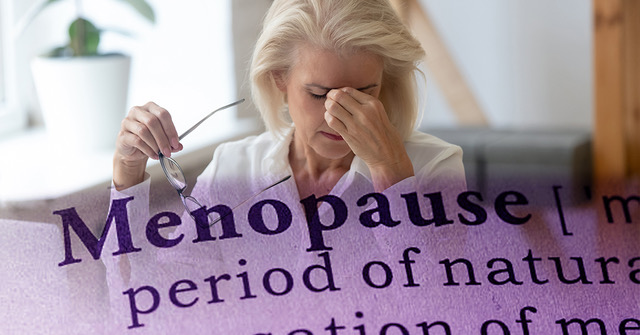
Can Menopause Cause Dry Eyes?
You’ve probably heard of (or experienced!) the hot flashes, irregular periods and other discomforts said to go along with the hormonal changes of menopause for women. But did you know that these changes also mean a higher risk of developing dry eye syndrome? Though tear production decreases for both men and women as we age, women over the age of 45 and postmenopausal women are particularly prone to dry eyes.
The hormonal connection
In the years leading up to menopause (called perimenopause), many women begin experiencing hormonal changes that affect the whole body, including the eyes.
According to a medically-reviewed article at healthline.com, researchers used to assume that low estrogen levels were the primary cause, but new investigations are focusing on the role of androgens.
Androgens are sex hormones that both men and women have. Women have lower levels of androgens, to begin with, and those levels decrease after menopause. It’s possible that androgens play a role in managing the delicate balance of tear production.
Will HRT help?
Some studies have shown that dry eyes improve with hormone replacement therapy (HRT), but others have shown that HRT makes dry eye symptoms more severe. The issue continues to be debated, and currently, there is no clear answer.
Decreasing Risk
Whether you’re female (before, during, or after menopause) or male, the following may help:
- Limit your screen time. If you work at a computer all day, remember to take breaks to close your eyes for a few minutes, or blink repeatedly for a few seconds.
- Protect your eyes. Sunglasses that wrap around the face can block wind and dry air.
- Avoid irritants like smoke and pollen, and activities like biking and boating.
- Try a humidifier to keep the air in your home or office moist
- Eat right. A diet rich in omega-3 fatty acids and vitamin A may encourage healthy tear production.
- Avoid contact lenses. Talk to your doctor about switching to glasses or specially designed contact lenses.
Managing symptoms
There are also a variety of artificial tears available over-the-counter which can help manage your dry eye symptoms. However, at some point, these products may not work as well, and with long-term use may cause toxic irritation or even allergic reactions (for more, see https://atlanticeye.com/2023/07/watch-out-for-chronic-dry-eye/)
If you have symptoms of dry eye, it’s important to talk with your Atlantic Eye doctor about ways to relieve the discomfort and the distress it may cause and to prevent the condition from possibly damaging your eyes.
